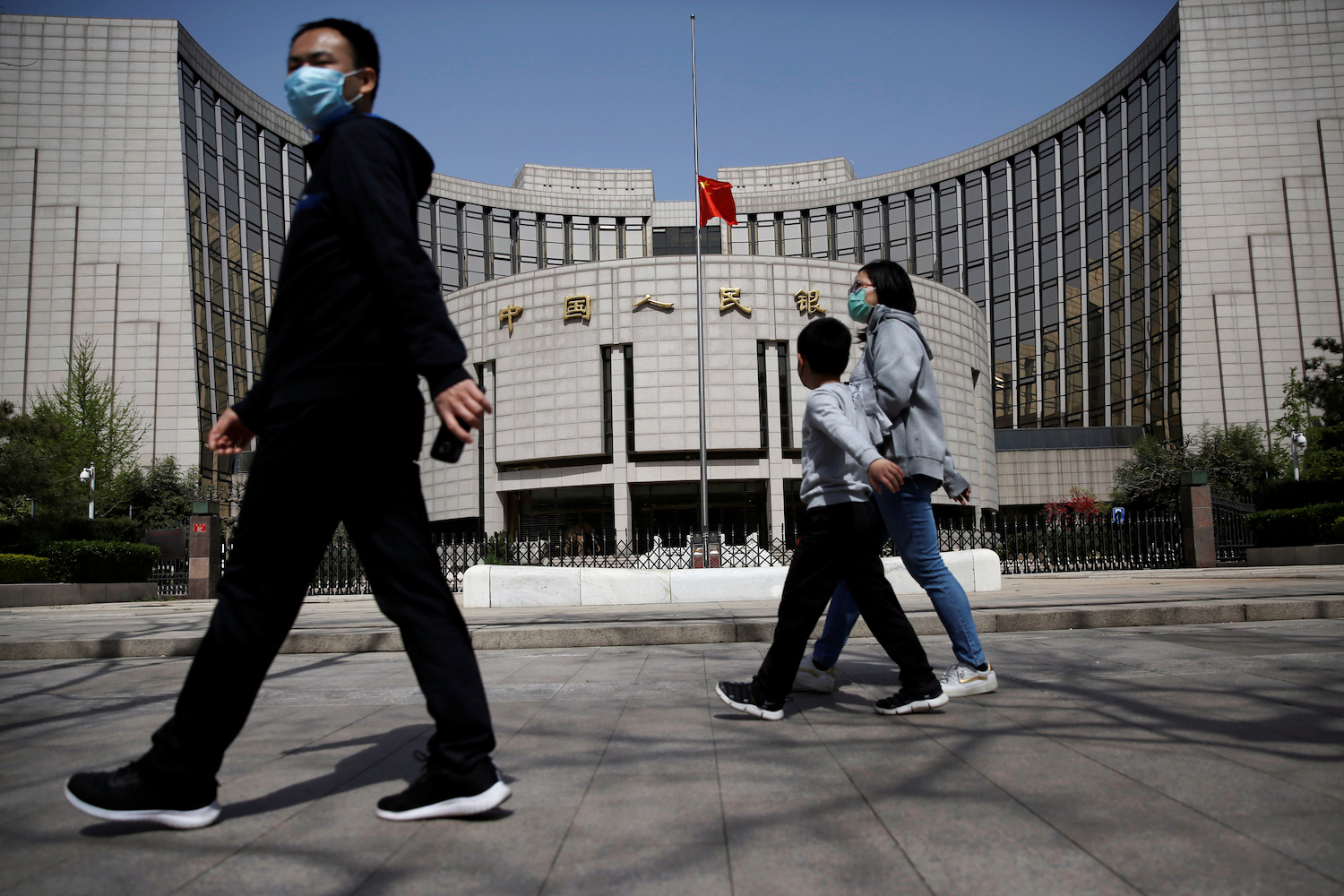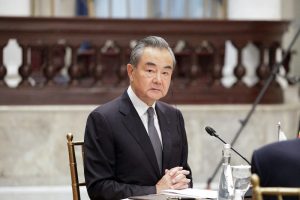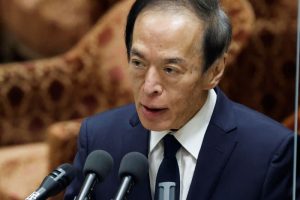(ATF) After a long delay China has finally enacted its Budget Law. China considers the Budget Law the most important support document in its “economic constitution”, which is perhaps understandable, given it relates to the management of 40 to 50 trillion yuan (up to US$7 trillion) in funding.
Chinese researchers at First Financial say the reason it took nearly six years to do the text in this final segment of the Budget Law is because it’s complicated.
A major stumbling block was defining the management power over the Treasury held by the Ministry of Finance (MOF) and the People’s Bank of China (PBoC) and its branches.
According to an analysis in China Business News, from the perspective of the final budget law and implementation regulations, the Financial Department still plays a leading role in the management of the Treasury and enjoys control of state funds.
But the MOF has responsibility for the Treasury’s business, while the central bank (PBoC) and its branches have also able to retain a function as “manager” of the Treasury business, instead of its “agent.”
After difficult discussions to reach a new consensus, the two entities maintained the current practice of Treasury management. But as implementation regulations do not clarify the meaning of the “manager” and its role, the two sides have a different understanding of this term.
Central bank made Treasury ‘manager’
The Treasury is a specialised agency that handles the receipt, division, retention, refund and payment of budget revenue. All government revenue needs to be turned over to the national Treasury. In 2019, the Treasury at all levels handled a total of 43 trillion yuan in public budget revenue and expenditure.
The modern treasury is not a physical warehouse in the traditional sense, stacking large amounts of cash, but financial departments at all levels have opened a single treasury account in the central bank, and the finances are stored in the account in digital form and recorded and calculated through a special computer system.
Wang Yongjun, director of the Government Budget Research Center at the Central University of Finance and Economics, told China Business News that there are three major powers in treasury management. One is to manage money, which is reflected in the large and frequent cash receipts and payments; the other is to manage accounts, which involves the government and budget units, plus bank account settings, adjustments and changes. The third is to manage investment, that is, funds from the Treasury. It can be said that the power in the management of the Treasury is even greater than budgetary power, so it is particularly “attractive”.
Like most countries, China’s national treasury adopts an entrusted system, with the central bank performing the functions of the national Treasury. This is also known as the PBoC’s agency treasury system. The People’s Bank of China has established a five-level system, with central, provincial, municipal, county (district), and township divisions.
In 1985, the State Council promulgated the “National Treasury Regulations”, which clearly stipulated that “the People’s Bank of China specifically manages the treasury”. This transformed the PBoC’s agency treasury system into a managed operation.
What specific changes has the central bank made by transforming from the “agent” of the treasury to the “manager”? According to the explanations of many central bank officials, “agents” only handle treasury business, and “managers” also have to supervise and manage treasury business – that is, supervising finance, collection agencies, commercial banks and other businesses related to treasury revenue and expenditure can be handled, along with violations of laws and regulations. The central bank also does treasury cash management.
However, First Finance noted that Finance Department officials don’t agree with this.
And a fiscal and taxation expert told China Business News that the central bank believes that if the Treasury managers completely follow the opinions of Financial Department officials, who will supervise inappropriate and harmful behaviour?
So, the central bank insists on “managing” the Treasury, and supervises and restricts the relevant actions of the ministry and its officials.
The MOF believes that the central bank’s insistence on being “manager” of the Treasury contravenes the ministry’s regulations and does not meet the requirements of the modern budget system. This issue has caused friction and affects the efficiency of budget execution.
In practice, with the advent of a centralised treasury payment system, payments of state funds are no longer directly handled by the People’s Bank, but first by the MOF (direct payment) or a budget unit (authorized payment) to directly issue funds to qualified agent banks The instructions are paid by the correspondent bank first, and at the end of each day, the correspondent bank then aggregates the payment amount and conducts a summary settlement with the central treasury. The central bank’s supervisory function is also mainly to review compliance in the clearing process with the correspondent bank.
Therefore, some Finance officials believe that the central bank supervisers cannot directly intervene in the execution of the budget, and it is impossible to dynamically review funds paid on a case-by-case basis. In order to improve the efficiency of fund allocation, the agent bank can directly check it.
The different views of the two parties on the “manager” and “agent” roles of the Treasury can also be seen from this latest instalment of the Budget Law and implementation of regulations drafted by the Ministry of Finance.
In order to adapt to the new situation, the 2011 Budget Law began to be revised. In the first three editions of the Budget Law amendments – a draft for review at that time, the section of the bill stating “the central treasury business is managed by the People’s Bank of China” was deleted. It was changed to state that the “central bank is the manager of the treasury”. But now, it has been changed again to say “the central bank acts for the national Treasury”.
Wang Yongjun, the Government Budget Research Center, said that under the agency system, the management of the treasury is led by the Ministry of Finance, and the central bank has relatively small powers and responsibilities. It should follow the MOF. The ministry and central bank have a principal-agent relationship. But in the treasury manager system, the central bank and the MOF have a parallel cooperative relationship, and the central bank has relatively larger powers and responsibilities.
In 2014, Liu Guisheng, then director of the central banks’ Treasury Bureau, stated that the institutional arrangement of the central bank’s management of the treasury has received an unprecedented “strong impact” when the Budget Law was revised.
Finally the MOF and the central bank made compromises and concessions. The Budget Law passed in 2014 restored the “central treasury business to be managed by the People’s Bank of China”. However, it also emphasised that “the power to control of treasury funds at all levels belongs to the fiscal department of the government at the same level” and allows “the establishment of special fiscal accounts in accordance with the law.”
Definition of ‘manager’ still unclear
However, this dispute did not stop. In order to cope with the revised Budget Law, the implementation of its regulations were also revised. And defining the concept of “manager” became a major focus.
In 2015, the draft of the revised budget regulations drafted by the Ministry was released for public comment. This draft of opinions defined in more detail the responsibilities of finance and the central bank in treasury management. However, some experts and scholars believe that the relevant content is clearly biased towards the MOF.
Soon after, the central bank’s media arm published comment by academics who said the draft violated the provisions of the law in regard to the PBoC’s role of manager of the treasury, and claimed it would be more financially responsible. Media at the MOF also published scholars’ opinions in support of the content of the draft, and the two sides launched a major debate on the definition of “manager”.
In the end, the detailed content of the responsibilities of both parties in the previous consultation draft was deleted.
Shi Wenwen, director of fiscal and taxation law research at China University of Political Science and Law, told China Business News that the ministry and the central bank have different understandings of the term “manager” of the treasury, partly because the law does not define what a manager is. The regulations were eventually implemented. But they also do not clearly define the manager’s role. So, the two parties have not been able to reach an agreement. The two entities basically maintain the status quo, and will gradually adjust and improve according to the budget management reform process.
Wang Zecai, a researcher at the Chinese Academy of Fiscal Sciences, also believed that from the perspective of regulations, the fiscal and central bank responsibilities in running the treasury basically just maintains the status quo.
“The implementation regulations of the Budget Law continue to adhere to the principle that the Treasury business is managed by the People’s Bank, but it must be emphasised that the treasury business is the payment orders issued by the MOF, and the People’s Banks at all levels handle it, not operate it,” Wang Zecai told Number-One finance.
The above-mentioned experts said the central bank implements the instructions of the MOF and handles specific business. It needs to accept guidance and supervision of the ministry in the treasury business. But the financial sector dominates. The central bank must specifically handle all operations in accordance with the instructions of the MOF.
“This positioning aims to establish a unified and centralised core budget management agency within the administrative department to efficiently implement the fiscal budget decisions of the National People’s Congress. If there are multiple executive leadership agencies within the administrative department, it will inevitably cause internal friction in budget execution and affect budget execution. We need efficiency,” the expert said.
Shi Zhengwen believes that in order to ensure the safety of state funds, management of the treasury should be appropriately divided to reflect the mutual restriction and coordination mechanism. If there is no coordination mechanism for the division of labour, the transparency of fiscal expenditures may be impaired. So, giving the central bank’s treasury proper execution responsibilities would help ensure a safe dispersal of treasury funds.
Fan Yifei, deputy governor of the central bank, wrote recently that with the continuous advancement of fiscal and taxation system reforms and development of the treasury’s information system, the bank’s treasury business had deepened connections with Finance, Taxation, Customs and other departments, and the smooth performance of the PBOC’s treasury department was dependable.
He said it was necessary to uphold and improve the central bank’s management of the treasury system, to give full play to the division of labor and mutual checks and balances between the central bank and relevant departments, and ensure safe, compliant and efficient flows of treasury funds.
























